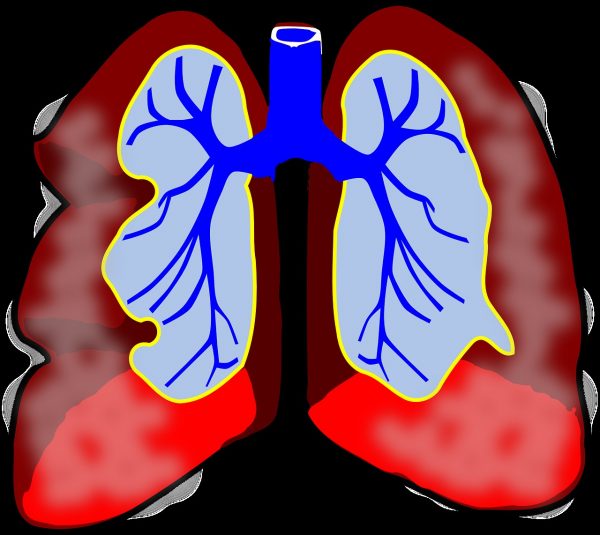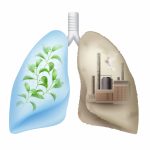Many people think of asthma as something that develops at a young age. But it can actually emerge at any age. People can even develop asthma symptoms for the first time when they are in their 60s, 70s and 80s.
Interestingly, new research published in the open access journal BMJ Open Respiratory Research shows people who have poor sleep patterns are more likely to develop asthma.
The risk is highest in people with both a genetic predisposition for asthma and poor sleep habits. These folks are about twice as likely to develop asthma than people who have healthy sleep patterns.
But here’s the thing. Even if you are at high genetic risk, sleeping well at night can really turn the table on things. A healthy sleep pattern among high-risk individuals can actually decrease asthma risk by nearly 40%!
And, of course, the absolute lowest risk is among people with a low genetic risk and healthy sleep patterns.
I think this link between sleep and asthma is extremely important, especially for people over the age of 60.
Why Aren’t You Sleeping at Night?
In the study, poor sleep patterns included things like how long a person sleeps, any reported insomnia or snoring, and excessive daytime sleepiness.
These are exactly the same symptoms that plague our aging population, and for many different reasons.
Pain is a big one. You snuggle into just the right position and suddenly your arthritis raises its ugly head. The aches in your neck, back, hip or knee start throbbing and keeps you awake.
This is a real problem. You’re tired the next morning and feel exhausted before the day even begins.
Sleep apnea is another biggie. People with apnea snore and sometimes wake up gasping for air. They frequently don’t even know it. They learn about it from their sleeping partner.
In the morning they wake up with a dry mouth and headache… and they end up feeling sleep all day long.
And men! Oh that nagging prostate, right? Nobody wants to get up and down all night long just to dribble over the toilet. It seriously disrupts normal sleep patterns.
Then we’ve got all the stress in our lives. Especially older folks. They constantly fear for the health and well-being of their adult kids, their grandkids and their great grandkids. They have generation after generation of worry on their minds and it keeps them up at night.
All of these sleep problems can set you up for late-onset asthma. And sadly, your physician may not be able to give you a proper diagnosis.
You see, asthma in older adults is often underdiagnosed because it can mimic other age-related health conditions. According to the Asthma and Allergy Foundation of America, symptoms may appear as shortness of breath, cough, chest pain and wheezing.
These could be symptoms of congestive heart failure, heart disease, bronchitis, emphysema and other health conditions associated with aging. So it is not always detected in a timely manner. And you know as well as I do that the ability to breathe properly is one of your number one priorities in life.
How to Sleep Well for Better Health
Asthma isn’t the only health issue linked to poor sleep. It is also associated with numerous chronic health concerns, including high blood pressure, diabetes, obesity, heart attack, dementia, heart failure, stroke and reduced immune system function.
So getting a good seven to eight uninterrupted hours of sleep each night is something we should all aim for.
If pain keeps you awake, I recommend taking a warm bath with 2 scoops of Epsom salt before bedtime. The magnesium in the salts helps relieve aches and relaxes you at the same time. Plus, it raises your core body temperature so when you step out of the bath your body is exposed to cooler air that sends it into a pseudo hibernative state.
Then, when you sink into your bed, choose a sleep position that is best for your area of pain.
If you are a loud snorer or experience other signs of sleep apnea it would be a good idea to spend the night in a local sleep lab. They can set you up with a CPAP machine, and you’ll start sleeping like you should again.
Does a nagging prostate keep you peeing all night? I would look for a concentrated beta sitosterol formula that is combined with other plant sterols (campesterol, stigmasterol and brassicasterol) to naturally decrease DHT levels linked to enlarged prostate. Stinging nettle is also great for reducing DHT levels. Not only does it reduce prostate size, it also improves urine flow and decreases the feeling of residual urine left in the bladder.
Stressed out with anxiety and brain chatter? There are a few supplements that may be able to help.
- 200 mg of L-theanine shortly before bedtime promotes calmness by increasing alpha activity in the brain. This results in “relaxed alertness.” And, when your mind is calm, you can get to sleep a lot faster.
- 100-200 mg of gamma amino butyric acid – or GABA for short – before bedtime soothes frazzled nerve cells and muffles neuronal activity in the brain. Many people suffering from primary insomnia are short on this nutrient.
- 500 mg of valerian combined with 120 mg of hops can improve both the quality of your sleep and the amount of time you spend in deep sleep.
A good night’s sleep is just as important to your health as diet and physical activity. And these are some pretty simple tips that can have a huge pay-off in terms of your long-term health. So make every effort to get a good night’s sleep – every night of the week.
SOURCES:
Xiang B, Hu M, Yu H, et al. Highlighting the importance of healthy sleep patterns in the risk of adult asthma under the combined effects of genetic susceptibility: a large-scale prospective cohort study of 455 405 participants. BMJ Open Respiratory Research. 2023;10:e001535.
Here’s What Happens When You Don’t Get Enough Sleep. Cleveland Clinic. News Article. March 25, 2022.
Cary D, Briffa K, McKenna L. Identifying relationships between sleep posture and non-specific spinal symptoms in adults: A scoping review. BMJ Open. 2019;9(6):e027633.
Goldman SM. Nocturnal neuropathic pain in diabetic patients may be caused by spinal stenosis. Diabet Med. 2005 Dec;22(12):1763-5.
University of Cambridge. “Seven hours of sleep is optimal in middle and old age, say researchers.” ScienceDaily. April 2022.
Safarinejad MR. Urtica dioica for treatment of benign prostatic hyperplasia: a prospective, randomized, double-blind, placebo-controlled, crossover study. J Herb Pharmacother. 2005;5(4):1-11.
Nobre AC, Rao A, Owen GN. L-theanine, a natural constituent in tea, and its effect on mental state. Asia Pac J Clin Nutr. 2008;17 Suppl 1:167-8.
Abdou AM, Higashiguchi S, Horie K, Kim M, Hatta H, Yokogoshi H. Relaxation and immunity enhancement effects of gamma-aminobutyric acid (GABA) administration in humans. Biofactors. 2006;26(3):201-8.
Winkelman JW, Buxton OM, Jensen JE, Benson KL, O’Connor SP, Wang W, Renshaw PF. Reduced brain GABA in primary insomnia: preliminary data from 4T proton magnetic resonance spectroscopy (1H-MRS). Sleep. 2008 Nov;31(11):1499-506.
Koetter U, Schrader E, Käufeler R, Brattström A. A randomized, double blind, placebo-controlled, prospective clinical study to demonstrate clinical efficacy of a fixed valerian hops extract combination (Ze 91019) in patients suffering from non-organic sleep disorder. Phytother Res. 2007 Sep;21(9):847-51.



